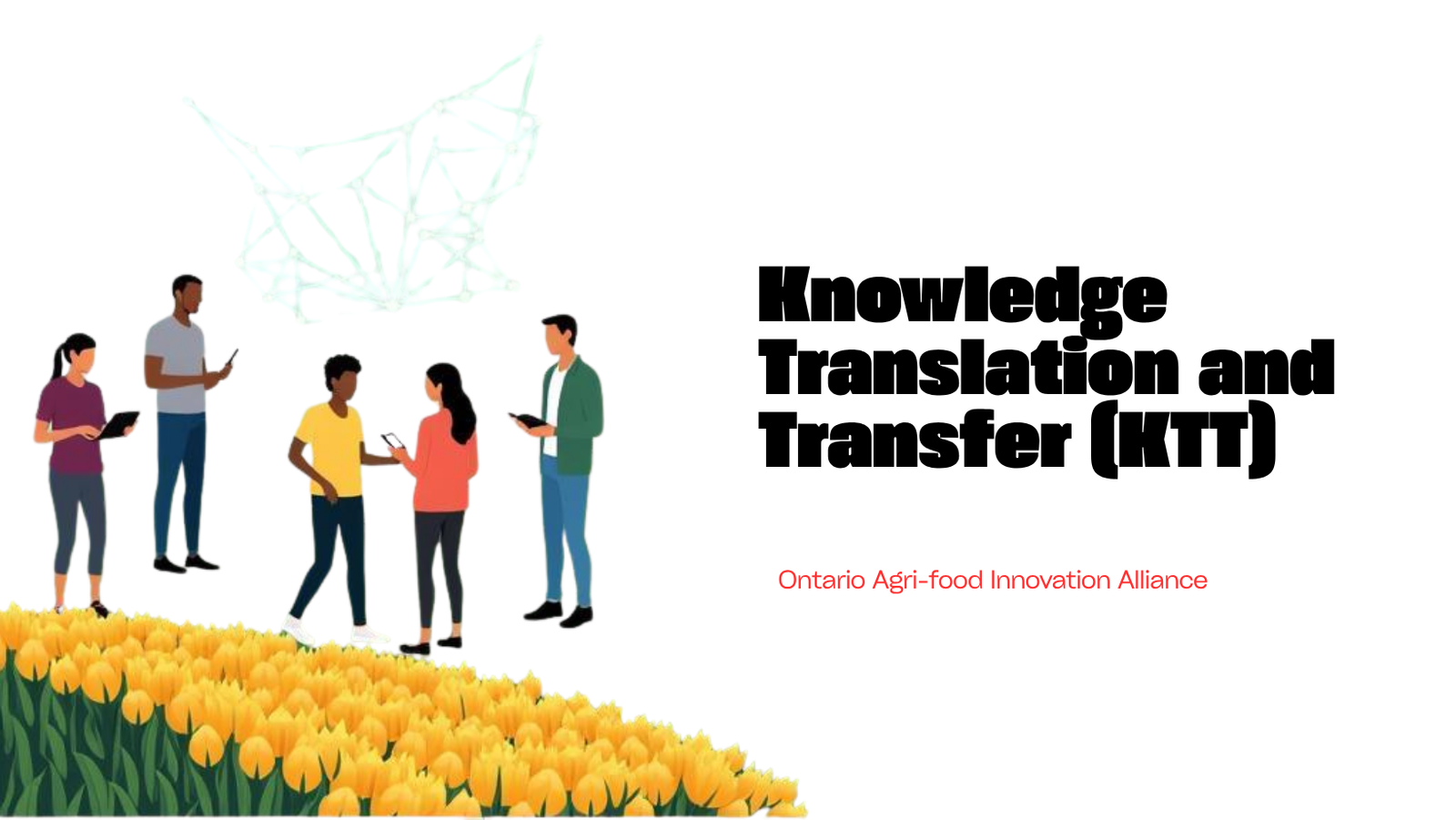The Ontario Agri-Food Innovation Alliance is dedicated to “getting science off the shelf” by collaborating with the broader agri-food, rural, and Indigenous communities. Knowledge translation and transfer (KTT) is an information exchange process that transforms knowledge into practical use. This involves synthesis, exchange, engagement, dissemination, dialogue, collaboration, and brokering among researchers and research users.
Other terms that describe this process include knowledge translation (KT) and knowledge mobilization (KMb). While KTT is an emerging field, the practice of applying scientific information and technology within the agri-food community has a long history of success in Ontario. Agricultural extension has played a crucial role in fostering a successful and innovative agri-food industry in the province.
To ensure that scientific information and technology effectively reaches end users, KTT experts in the Office of Research, Agri-Food Partnership, and the Ontario Ministry of Agriculture, Food and Agribusiness work together. They provide tailored KTT services to assist University of Guelph researchers, faculty, staff, and students in developing KTT plans that support their Research Program projects, which are required to include a KTT plan.
Other terms used to describe this process are knowledge translation (KT) and knowledge mobilization (KMb).
While KTT is a growing field, the concept of taking scientific information and technology into the agri-food community has a long history of success in Ontario. Agricultural extension has played an important role in facilitating the development of a successful, innovative agri-food industry in the province.
To ensure scientific information and technology reaches end users, KTT experts in the Office of Research, Agri-Food Partnership and at the Ontario Ministry of Agriculture, Food and Agribusiness work together to provide tailored KTT services to help U of G researchers/faculty, staff and students develop KTT plans to support their Research Program projects, which must include a KTT plan.


